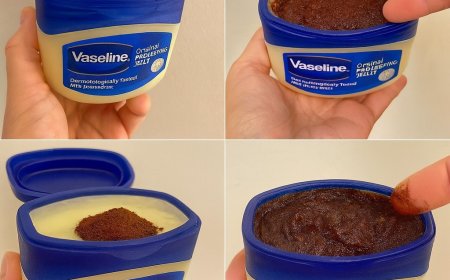The Real Causes of Constant Phlegm and Mucus in Throat and How to Get Rid of It
We all experience mucus buildup from time to time — especially during a cold, after eating, or in dry environments. However, when your throat constantly feels coated, and you find yourself clearing it all day, something deeper may be going on. The human body naturally produces mucus to keep the respiratory system moist and protected. But when mucus production becomes excessive, it can interfere with breathing, speaking, and even sleeping. Persistent phlegm in the throat can be a sign of underlying conditions such as acid reflux, allergies, infections, or environmental irritants.
2.
1. Acid Reflux (Silent Reflux or GERD)
One of the most common yet overlooked causes of excess mucus is acid reflux. This occurs when the valve at the top of the stomach doesn’t close properly, allowing stomach acid to move upward into the esophagus and throat.
While classic acid reflux (GERD) usually causes heartburn, silent reflux or laryngopharyngeal reflux (LPR) can exist without burning pain. Instead, you may feel a lump in your throat, constant throat clearing, hoarseness, or a persistent cough — all signs that stomach acid is irritating the throat lining and stimulating mucus production.
How to help:
Avoid acidic foods like citrus, tomatoes, coffee, and chocolate.
Eat smaller meals and avoid lying down right after eating.
Elevate your head while sleeping.
Drink warm water with honey or ginger to soothe irritation.
2. Allergies and Sinus Problems
Allergies trigger the immune system to release histamines, which cause nasal passages to produce excess mucus as a protective response. This mucus often drips down the back of the throat, known as postnasal drip — a major reason for that “stuck” feeling or constant need to clear your throat.
Common triggers: pollen, dust mites, pet dander, mold, or even certain perfumes.
What helps:
Use a saline nasal spray or rinse (like a neti pot) to flush allergens out.
Keep windows closed during high pollen seasons.
Take a shower after being outdoors to wash off pollen and dust.
Drink plenty of fluids to thin the mucus.
3. Respiratory Infections
Colds, flu, and sinus infections all lead to inflammation and increased mucus production. When you’re sick, your body naturally produces more mucus to trap and flush out germs.
While this type of mucus buildup is temporary, it can linger for days after recovery as your throat continues to heal.
To recover faster:
Inhale steam from hot water or a shower to loosen congestion.
Gargle with warm salt water to reduce throat irritation.
Rest and stay hydrated — your body clears mucus more efficiently when well-rested.
4. Dry Air and Dehydration
When the air is too dry — especially during winter or in air-conditioned spaces — your nasal passages and throat can become irritated. The body compensates by producing thicker mucus to keep tissues moist.
Similarly, not drinking enough water can make mucus thicker and harder to clear, worsening that “phlegmy” sensation.
What to do:
Use a humidifier to add moisture to the air.
Drink at least 6–8 glasses of water daily.
Avoid excessive caffeine and alcohol, which can dry you out.
5. Smoking and Environmental Irritants
Cigarette smoke, pollution, and strong chemical fumes are all major irritants that inflame the respiratory lining. This leads to chronic mucus production as the body tries to protect itself.
Smokers often experience a “smoker’s cough” — a sign that the lungs are trying to expel trapped phlegm and toxins.
Solution:
Quit smoking or limit exposure to secondhand smoke.
Ventilate rooms properly when cleaning or painting.
Spend more time outdoors in fresh air, away from pollutants.
6. Food Sensitivities and Diet
Certain foods can also stimulate mucus production. Dairy products, fried foods, refined sugar, and gluten are known triggers for some people. If you notice excess mucus after eating, try keeping a food diary to identify the culprits.
Natural alternatives:
Replace dairy milk with plant-based options like oat or almond milk.
Eat more anti-inflammatory foods like turmeric, garlic, and leafy greens.
Add ginger or apple cider vinegar to your diet to balance digestion.
Natural Remedies to Clear Throat Mucus
You don’t
always need medication to manage throat mucus. Try these simple, natural solutions to find relief:
Warm salt water gargle: Dissolve ½ teaspoon of salt in a cup of warm water and gargle twice daily to soothe your throat.
Steam inhalation: Add a few drops of eucalyptus oil to hot water and inhale deeply for several minutes.
Honey and lemon tea: Soothes the throat and helps thin mucus.
Hydration: Keep sipping warm fluids throughout the day.
Avoid dairy and fried foods if you’re prone to thick mucus buildup.
When to See a Doctor
If mucus production persists for several weeks, or if you experience shortness of breath, chest pain, or blood in mucus, consult a healthcare professional. Chronic mucus buildup could be linked to more serious issues like chronic sinusitis, allergies, or reflux disease that may require treatment.
T.ap the p.hoto to v.iew the full r.ecipe.


























